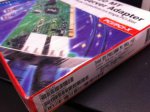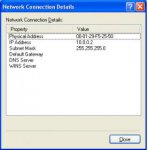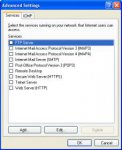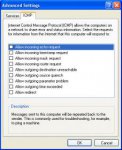freshfeesh
Explorer
- Joined
- Oct 10, 2011
- Messages
- 72
The onboard LAN on my mobo went belly up long ago while it was still a workstation. Since then I've been using a DLink PCI NIC with a Marvell controller. I got FreeNAS up and running on that. It was working but slow. Based on strong forum preference for Intel NICs for performance and stability, I got one to replace the DLink, specifically the expi9301ct PCIe version. I initially just installed the Intel alongside the DLink, thinking that someday I might play with link aggregation, and rebooted with the cable plugged into the Intel. I was dead in the water, and have been since. I can't even get it to work in the old state, with only the Dlink installed.
With a monitor and keyboard hooked to the NAS box, I've reset and deleted the network interfaces in various combinations multiple times. I power cycled the router. I reinstalled FreeNAS to the compact flash card from the image, still the same thing upon first boot. Right now the Intel is in and hooked up to the cable and the DLink is uninstalled. I have the Intel hooked straight into my (old) Netgear router. The link lights come on on both the router (on each of two different ports that I tried) and the card, but the Intel card (i.e. its MAC address) doesn't show up in the "attached devices" in the router admin page. Setting a static IP on Freenas doesn't work. Two other machines on the network see each other and the internet just fine.
What can I try next? Is there any way a bios setting could subtly affect the functioning, but not the on/off state, of add in network cards?
Thanks.
With a monitor and keyboard hooked to the NAS box, I've reset and deleted the network interfaces in various combinations multiple times. I power cycled the router. I reinstalled FreeNAS to the compact flash card from the image, still the same thing upon first boot. Right now the Intel is in and hooked up to the cable and the DLink is uninstalled. I have the Intel hooked straight into my (old) Netgear router. The link lights come on on both the router (on each of two different ports that I tried) and the card, but the Intel card (i.e. its MAC address) doesn't show up in the "attached devices" in the router admin page. Setting a static IP on Freenas doesn't work. Two other machines on the network see each other and the internet just fine.
What can I try next? Is there any way a bios setting could subtly affect the functioning, but not the on/off state, of add in network cards?
Thanks.




